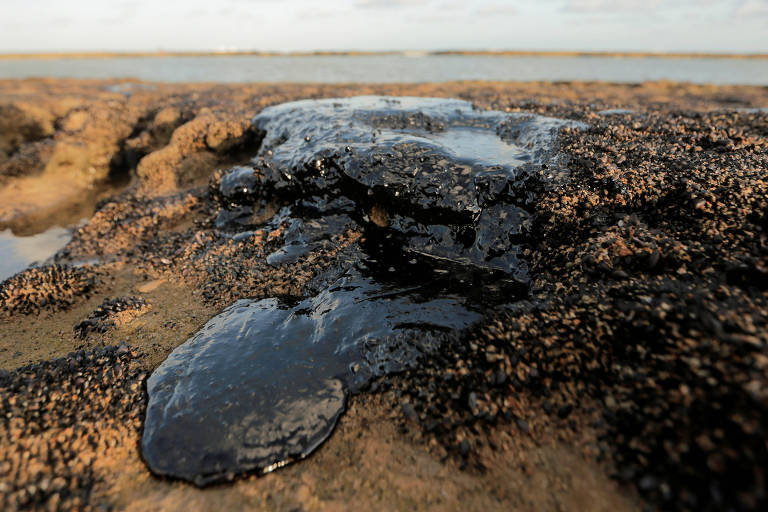"It was God who made this oil to lubricate the earth's axes. The man invented to move, and he came here on the beach to kill our fish," says fisherman Givaldo Batista dos Santos, 57,
On top of a fiberglass boat, he looks out over the horizon as he travels the Itapicuru, a river that rises in the interior and flows into the border between Bahia and Sergipe.
The landscape is paradisiacal: the river meets the sea amid mangroves and coconut trees on Siribinha beach, a small village of 500 residents in the municipality of Conde (181 km from Salvador).
But there is something strange between the shells and crabs on the shores of the sea and the river. The same oil that already hit beaches in eight Northeastern states has now arrived in force along the Bahia coast.
Folha visited eight beaches in five coastal cities of Bahia and Sergipe and found a bleak scenario. In the small villages that spread along the shores of the beaches, residents live a mix of powerlessness, anger, and revolt.
The presence of oil has already been recorded in 139 beaches of 63 northeastern municipalities, according to the Ministry of Environment. And gradually, it began to enter rivers such as Itapicuru, Vaza-barrels, and even São Francisco, reaching estuaries that are the nursery of plant and animal species.
In addition to fishing, locals also rely on tourism for income along the northeastern coast. Unfortunately tourism is already being affected. At Sítio do Conde inns, visitors coming for the October 12 holiday canceled their reservations.
Translated by Kiratiana Freelon
